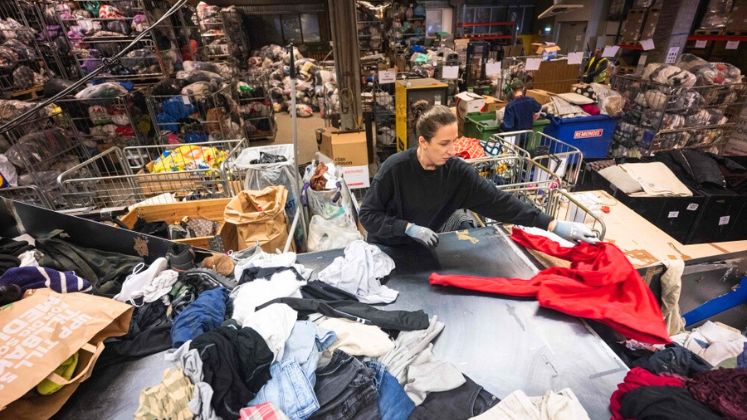
After an EU-wide ban on discarding textiles this year, Sweden’s recycling facilities are overflowing with clothing, and overburdened communities are desperate for fast fashion behemoths to take accountability.
In addition to the current procedures for glass, paper, and food waste, EU nations have been required to establish distinct textile recycling since the beginning of this year.
By sorting and reusing textiles—or recycling them if they are not too damaged—the goal is to advance circular waste management. After sorting, about 60–70 per cent of the textiles are intended for reuse, and the remaining 20–30 per cent are recycled into composite materials, padding, or isolation.
The Swedish Environmental Protection Agency estimates that between seven and ten percent is burned for energy. According to experts, that is a significant improvement over the previous approach of routinely burning old garments before the new regulation.
However, because of Sweden’s inadequate infrastructure, used clothing is mostly sent overseas, mostly to Lithuania, where it is sorted, recycled, or burned to generate energy.
According to the Swedish Society for the Conservation of Nature, 90,000 tonnes of textiles are thrown away annually by Swedes, or 10 kilogrammes per person. The European Environment Agency reported that the average weight of the EU in 2022 was 19 kg, up from 17 kg in 2019.
In Sweden, municipalities are responsible for sorting textiles, and many of them are overworked due to the increased volume of textiles received since the new regulation was implemented.
Some places in the sparsely populated north still burn textiles because they don’t have any buyers.
It is anticipated that fast fashion behemoths like Zara and H&M will eventually contribute to the management of the garbage they contribute to, and discussions are currently taking place at the European level to ascertain their accountability.
Clothing giants will be held accountable for the end-of-life of the products they sell and will have to pay for collection, sorting, reuse, and recycling, according to a draft agreement negotiated by EU member states in February.






